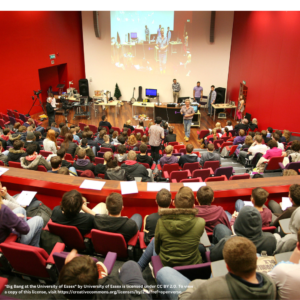
The Economist recently featured a fascinating dive into Stanford GSB and its most popular MBA courses. Notorious as one of the toughest MBA programs to get into – with an approximate 6% acceptance rate and a class size of about 420 — Stanford GSB’s alumni roster speaks for itself: including British prime minister, Rishi Sunak, and General Motors CEO, Mary Barra.
While GSB offers all the academic offerings of traditional MBA programs – from case studies to accounting lectures — its three most oversubscribed courses have little to no quantitative content: Paths to Power, Interpersonal Dynamics, and Managing Growing Enterprises. As the Economist observes, each seemingly inculcates its own core skill: hardheadedness, introspection, and diplomacy (respectively).
Here is a peek into each course:
- Paths to Power: the objective of Prof. Jeffrey Pfeffer’s course is to make sure “you never have to leave a position involuntarily” and develop sensitivity and skill in coping with power dynamics. One takeaway from the course – to maintain power, avoid grooming successors. Another takeaway to protect oneself from rivals is to hold several overlapping roles within an organization. Xi Jinping, who holds at least ten titles, including China’s presidency, is a perfect example, Economist notes.
- Interpersonal Dynamics: taught for about 50 years, GSB’s most famous course (nicknamed ‘Touchy Feely’) shows students how to evaluate their own public image and assess whether they are coming across the way they want to. The class mainly consists of unstructured conversation in groups of 12 students in addition to a weekend retreat. The course culminates in students sorting themselves into a line according to degree of “influence” as each student perceives it. Those convinced of their own capacities can attempt to insert themselves at the front of the line but risk getting rebuffed by their peers. The point is self-discovery and the opportunity to mitigate weaknesses.
- Managing Growing Enterprises: this course explores how to deal tactfully in sensitive situations. Questions the course covers include How do you lay someone off? How do you decline unsolicited and unhelpful advice from a big investor? How do you respond to a nosy journalist? In each class, a handful of students are cold-called to initiate role-playing exchanges. Then the professor and other students offer feedback, which can be very critical.
For a full read of this fascinating article from the Economist, click here.
